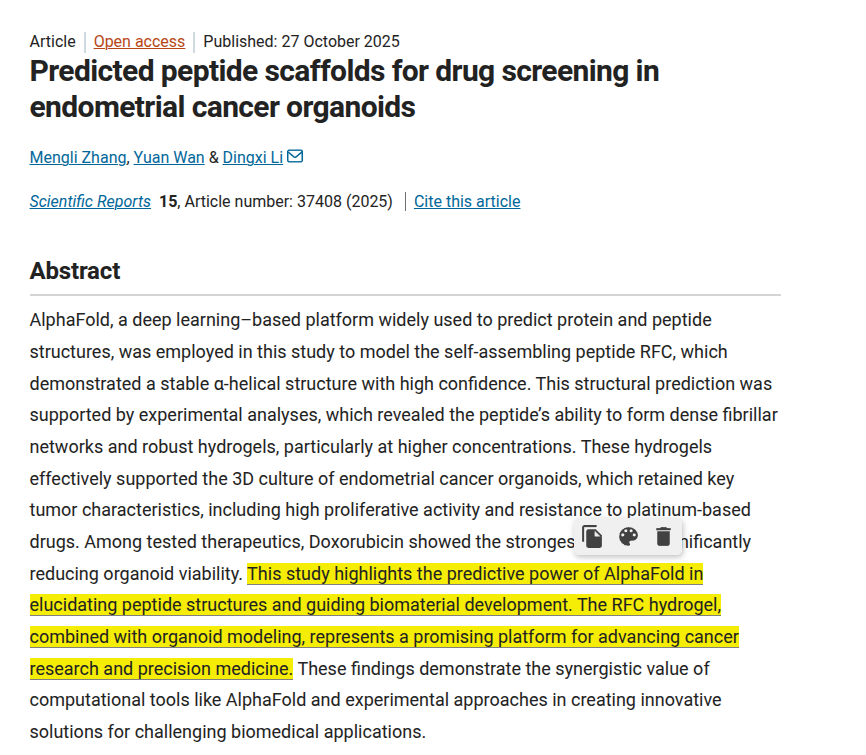AlphaFold3-Designed Peptide Gel Sustains Uterine Cancer Mini-Tumors for 14-Day Drug Screening

A groundbreaking research effort has leveraged Google's AlphaFold3 to develop a novel computer-designed peptide gel, significantly advancing the process of personalized drug testing for uterine cancer. This innovative gel enables the growth of patient-specific uterine cancer mini-tumors, facilitating rapid and accurate identification of effective treatments. The development, detailed in an upcoming publication, marks a crucial step in accelerating drug discovery.
Google DeepMind's AlphaFold3, a powerful artificial intelligence model known for its ability to predict the structures of proteins, DNA, RNA, and ligands, was instrumental in the design of this specialized peptide gel. According to a social media announcement by Rohan Paul, AlphaFold3's capabilities were directly applied to "build a computer designed peptide gel that grows a patient's uterine cancer mini tumors for quick drug test." This highlights the AI's role in engineering biological materials with specific functionalities.
The research team focused on creating a practical and accessible solution for laboratories. "The team made a cheap, clean gel recipe, so labs can repeat the test the same way every time," the announcement stated. This standardization is critical for reliable and comparable drug screening results across different research settings, addressing a long-standing challenge in preclinical testing.
A key achievement of this new method is the extended viability of the tumor models. The mini-tumors, grown within the AlphaFold3-designed gel, "stayed alive and real-looking for 14 days," ensuring that the drug test results closely mimic in-body conditions. This prolonged observation period allows for more comprehensive drug efficacy studies, offering a more accurate prediction of patient response.
This innovation provides "a simple way to grow a tiny copy of a patient’s tumor, then quickly see which drug actually hurts it." The ability to rapidly test various drugs against a patient's own tumor cells holds immense promise for personalized oncology, potentially reducing treatment delays and improving outcomes for individuals battling uterine cancer. The findings are expected to be published in Nature, further solidifying the impact of AI in biomedical research.